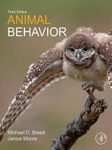About this book
On Human Nature: Biology, Psychology, Ethics, Politics, and Religion covers the present state of knowledge on human diversity and its adaptative significance through a broad and eclectic selection of representative chapters. This transdisciplinary work brings together specialists from various fields who rarely interact, including geneticists, evolutionists, physicians, ethologists, psychoanalysts, anthropologists, sociologists, theologians, historians, linguists, and philosophers. Genomic diversity is covered in several chapters dealing with biology, including the differences in men and apes and the genetic diversity of mankind. Top specialists, known for their open mind and broad knowledge have been carefully selected to cover each topic. The book is therefore at the crossroads between biology and human sciences, going beyond classical science in the Popperian sense. The book is accessible not only to specialists, but also to students, professors, and the educated public. Glossaries of specialized terms and general public references help nonspecialists understand complex notions, with contributions avoiding technical jargon.
Contents
Part I. Biological Basis of Human Diversity
1. The Advent of Biological Evolution and Humankind: Chance or Necessity?
2. Hominins: Context, Origins, and Taxic Diversity
3. The History of Early Homo
4. The Contribution of Genetic Ancestry From Archaic Humans to Modern Humans
5. World Dispersals and Genetic Diversity of Mankind: The Out-of-Africa Theory and Its Challenges
6. Human Population Variability and Its Adaptive Significance
7. Evolution and Implications of Genomic Diversity on "Human Kind" in India
8. The Human Brain: Evolution and Distinctive Features
9. How Different Are Humans and "Great Apes" – A Matrix of Comparative Anthropogeny
10. Human Intergroup Variation and Disease Genetics
11. Natural Selection Associated With Infectious Diseases
12. Aging, Somatic Evolution, and Cancer
13. Evolution of the Human Leukocyte Antigen System
14. Human Life History Evolution: New Perspectives on Body and Brain Growth
15. Gorillas in Our Midst? Human Sexual Dimorphism and Contest Competition in Men
16. The Human Family: Evolutionary Origins and Adaptive Significance
17. Biological Future of Humankind: Ongoing Evolution and the Impact of Recognition of Human Biological Variation
Part II. Psychology, Behavior and Society
18. Gene-Culture Models for the Evolution of Altruistic Teaching
19. Multiple Origins of Agriculture in Eurasia and Africa
20. The Quantum Origin of Life: How the Brain Evolved to Feel Good
21. Empathy, Theory of Mind, Cognition, Morality, and Altruism
22. Cognitive Ethology and Social Attention
23. Human Sociobiology and Group Selection Theory
24. Behavior Analysis, Darwinian Evolutionary Processes, and the Diversity of Human Behavior
25. A Psychoanalyst Views the Self Across Civilizations
26. Biological and Social Causation of Serious Mental Illness
27. The Flexible Psychological Concept of Normality
28. Diversity and Hierarchy in the Evolution of Mental Mechanisms
29. Human Diversity at the Individual and Population Levels, and Societal Hierarchies
30. Homosexuality and Evolution: A Critical Appraisal
31. The Roots and Individual Diversity of Addiction
32. Human Variability and the Origins and Evolution of Language
33. Human Evolution and Progress
34. Culture, Brain, and Behavior: The Implications of Neural Plasticity and Development on Social Contexts and Political Structures
Part III. Ethics, Politics and Religious Considerations
35. Adaptive Significance of Ethics and Aesthetics
36. The Politics of Human Nature
37. The Race/Ethnic Debate: An Outsider's View
38. Social Darwinism
39. History and Diversity of Religion
40. Religion Viewed From Different Sciences
41. Universal Humanity, Religious Particularity, and Scientific Reductionism
42. Evolution and the Future of Medicine
43. The Impact of Modern Medicine on Human Evolution
44. Science and Technology in Human Societies: From Tool Making to Technology
45. Biology, Psychology, Ethics, and Politics: An Innate Moral Sense?
46. What HIV Has Taught About the Interactions Between Biology, Culture, and Other Evolving Systems
Customer Reviews
Biography
Michel Tibayrenc, MD, PhD, has worked on the evolution of infectious diseases for more than 35 years. He is a director of research emeritus at the French Institut de Recherche pour le Developpement (IRD), the founder and editor-in-chief of Infection, Genetics and Evolution (Elsevier), with a 2014 impact factor of 3.015, and the founder and principal organizer of the international congresses MEEGID (molecular epidemiology and evolutionary genetics of infectious diseases). He is the author of more than 200 international papers. He has worked for one year in Algeria (as a general practitioner), one year in French Guiana, seven years in Bolivia, five years in the United States, and three years in Thailand. He has been the head of the unit of research "genetics and evolution of infectious diseases" at the IRD research center in Montpellier, France, for 20 years. With his collaborator Jenny Telleria, he is the founder and scientific adviser of the Bolivian Society of Human Genetics (2012). He has won the prize of the Belgian Society of tropical medicine (1985), the medal of the Instituto Oswaldo Cruz, Rio de Janeiro (2000), for his work on Chagas disease, and he is a fellow of the American Association for the Advancement of Science (1993).
Francisco J. Ayala is University Professor and Donald Bren Professor of Biological Sciences and Professor of Philosophy at the University of California, Irvine. Dr. Ayala is a member of the National Academy of Sciences (NAS), a recipient of the 2001 National Medal of Science, and served as Chair of the Authoring Committee of Science, Evolution, and Creationism, jointly published in 2008 by the NAS and the Institute of Medicine. Dr. Ayala has received numerous awards, including the 2010 Templeton Prize for "exceptional contribution to affirming life's spiritual dimension," and 23 honorary degrees from universities in ten countries. He has been President and Chairman of the Board of the American Association for the Advancement of Science and President of Sigma Xi, the Scientific Research Society of the United States. Dr. Ayala has written numerous books and articles about the intersection of science and religion, including Darwin's Gift to Science and Religion (Joseph Henry Press, 2007), Am I a Monkey? (Johns Hopkins University Press, 2010), and The Big Questions: Evolution (Quercus, 2012). He is also the author, with Camilo J. Cela-Conde, of Processes in Human Evolution (Oxford University Press, 2017). He teaches classes in evolution, genetics, and the philosophy of biology, which are also the subjects of his research.


































